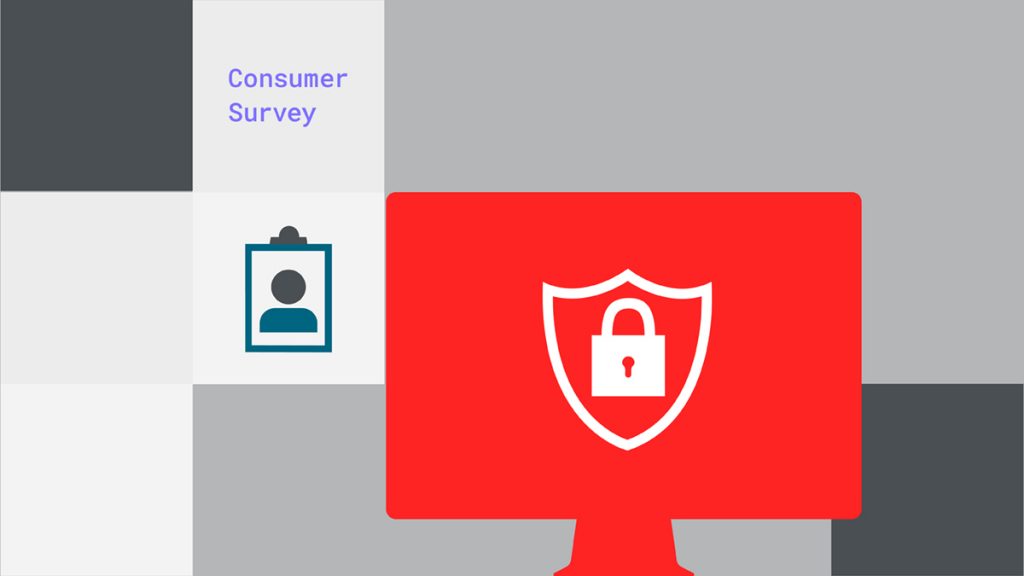In a just-released Axway consumer survey, a majority of Americans say they want greater transparency in how companies handle and track their data. They’re having trouble trusting that their data is safe. On the other hand, they feel it’s worth opening their information up to companies if it results in a better digital experience or fills a need.
Brilliant digital experiences lie in that tension: companies need to build from a foundation of trust, and they’ll stand out by offering the most frictionless customer experience.
People say they want transparency, and also excellent digital experiences
The consumer survey, conducted in April 2021, asked 1,017 American adults from a representative sample about their general understanding and concerns related to how companies use, handle, and track their data.
The study found 82% wish they knew what specific data companies have collected about them. Many also had concerns that their online data may not be secure, and only 39% of Americans said they know where their online data is stored.
More than three-quarters (77%) of Americans say they feel like they are constantly being watched by large companies online.
At the same time, 59% of people agreed it’s worth giving companies access to their personal data if it results in a better user experience.
Whether in energy, health, finance, or retail, companies are trying to stand out and provide excellent digital experiences while also complying with industry data privacy and security requirements, which is no simple proposition.
Eliminating friction in customer experiences is the biggest competitive advantage, and these survey results point to security breaches and privacy concerns as a snag in the fabric of the seamless experience people have come to expect.
We’re full of contradictions
People have some contradictory views and behaviors: they say security and privacy are essential, but frequently go for convenience if it serves them better.
For example, less than half (45%) of respondents feel companies are transparent about the ways they use data online or feel they have a good understanding of how websites or apps use their data when logged in (47%).
But at the same time, two-thirds of people surveyed use their Facebook or Google accounts to log into other apps so they won’t have to create new logins.
Painting a full picture from this sort of opinion data is delicate because there’s often a discrepancy between what people say matters to them, and what they actually do. People love to complain about Facebook, often doing it ON Facebook.
And sometimes, being presented with a new choice changes things: when Apple was about to launch iOS 14.5, where apps would have to use the company’s new App Tracking Transparency framework, we asked people in our survey if they’d opt into app tracking.
39% responded they’d allow it, 52% if given the option to opt-out at any time. Now that we can look at actual real-time behavior, initial data on app tracking on Apple’s new iOS shows opt-in rates are hovering around just 11-13%.
The real story
Any intelligent person is going to check the box saying “security and privacy are important to me,” because it’s what they’re supposed to say. But experience tells us that consumers will go wherever the least amount of friction is, to the best experience, regardless of the custody chain of your data.
The average consumer doesn’t especially concern themselves with who currently holds their data and where — nor should they have to.
All the world’s data are essentially being stored in one of the big three or four clouds, and those companies have billions of dollars at stake in making sure that the custody is okay, that there’s physical security, credential security, audit trails, regulatory compliance, and so forth.
The real story is that people can sometimes worry about the wrong thing, and while companies of course need to build on a secure foundation, they’ll really get customers’ attention by providing the most convenient experience with the least amount of friction.
Don’t let privacy and security concerns introduce friction
People mostly notice when something goes wrong. Security breaches and privacy concerns are another snag in the fabric that harms the frictionless experience people have come to expect.
In an increasingly connected world, we will continue to hear about security leaks. You can establish trust by giving consumers peace of mind about the back-end complexity thanks to secure solutions. And then, you can focus on the job of providing those brilliant new customer experiences.
User experience is still determining who wins and loses right now. Companies are figuring out how to deliver excellent experiences, which on its own is hard enough, and they also need to do it at scale, quickly and make sure they aren’t running afoul of privacy and security expectations.
For legacy companies who don’t have a technology background — and even for digital-native companies — this is not a simple proposition. If your expertise is brick and mortar, then delivering a great digital experience simply isn’t your DNA.
The right partner will help build brilliant digital experiences
Being able to rely on a suite of battle-tested tools, like Axway’s Amplify API Management Platform, which will give you scalability, privacy and security audit trails, and regulatory and compliance frameworks, makes it so you can focus on delivering the best and most secure experience.
If you are trying to create an excellent customer experience, security is not something you should be trying to improvise. It’s not something you should be doing after the fact.
You need to go into it with trusted tools and battle-hardened vendors who can get you there. And that’s how you can build trust with your customers that they’ll get a great experience and not need to worry about your security or their privacy.
Read the full survey results here
Need help eliminating friction in your customers’ digital experiences? Schedule a free call with an Axway Catalyst.
